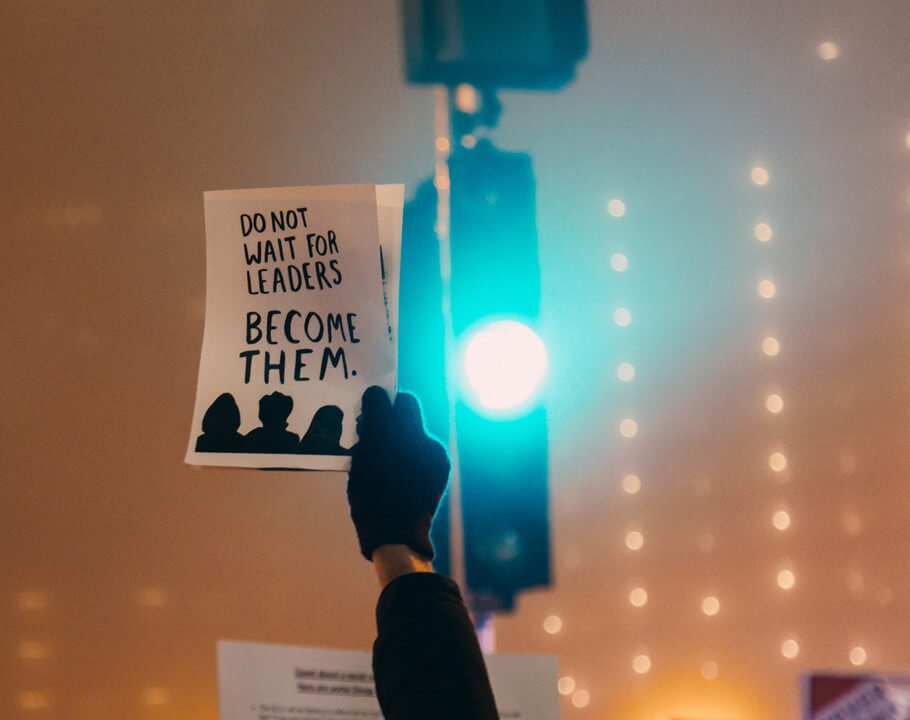How Can Leaders Step Up?

One of the things that has struck me about the whole Brexit debacle (and it is a debacle whichever side of the equation you sit on) is the whole question of leadership. In particular – but not exclusively – the leadership of Theresa May.
As a woman, I hoped that she would be a good leader. She might not be my kind of leader, and I don’t vote Tory, but as a woman, I really wanted her to show up as a good leader. Someone who brought people together, who inspired, not someone who was primarily known simply for their ability to hang in there. Who, if they inspired anything, inspired a mixture of pity and profound irritation.
Unfortunately, I suspect she’s set back the cause of female leadership – particularly in the political mainstream – by a good few years. And I do hope I am wrong!
My main role in life is to shape leaders, whether they are leaders in organisations, in the political sphere, in their communities, in their families.
Mostly I am working with female leaders, but I have male clients too. Even the Huna work I do, helping people let go of the mental and emotional blocks to their leadership journey, and raise their consciousness to a higher level, is as much about shaping leaders as it is about helping people find happiness in their lives.
One of the things I have noticed is that effective leaders are very good at stepping into their ruler energy in a balanced, rather beautiful way. Less effective leaders either don’t step into at all, or do so intermittently or in an unbalanced way. Think Queenie in the Blackadder Elizabethan series.
I’ve seen it in new managers who are struggling with a role that they haven’t yet owned: they can flip-flop between trying to be nice and being extremely patronising, prone to wrist-slapping and ‘why haven’t you done this yet?’ In fact, I have been that manager myself!
We all have doubts: I know very few people who don’t have them, although we might express them differently. I have worked with leaders who are perceived as downright arrogant, yet underneath they’re praying no-one finds them out.
One of the things that many leaders seem to fear is showing their own vulnerability. After all, that’s weakness – isn’t it? And everyone wants a strohhhhhhng leader – don’t they?
How sad it is that leaders, and political leaders in particular, are discouraged from showing their vulnerability. That vulnerability is too often seen as a Bad Thing, a sign of weakness, an opportunity to launch an attack. The leader should be a superwoman (or superman), a rescuer, a hero, but never vulnerable.
Of course, I’m exaggerating but, based on over 20 years of coaching and training leaders, it’s a pattern I’ve seen again and again. Ironically, when asked what qualities they look for in a leader, people generally put trustworthiness above strength.
My PhD thesis is on Spirituality and Leadership. I wrote it in 2009, so some of the thinking that was current back then may be a bit out-dated, and certainly, vulnerability wasn’t a word often used in a leadership context. We have Brene Brown to thank for that, and thank her I do.
Revisiting it I was struck by a couple of quotes I had collected from the leadership gurus of the day. Here’s how I summarised the thinking of Jim Collins:
“It is modesty, and a willingness to shun public admiration and act with quiet, calm determination, relying on ‘inspiring standards, not inspiring charisma, to motivate’ which often makes the best leader.”
One of the writers who I looked at 10 years ago was Rosa Say, a Hawai‘ian whose mission in life is to get the Hawai‘ian principle of Aloha, unconditional love, into management. She comments that, for the Hawai‘ians, it is assumed that we all have spiritual power and this is celebrated as a part of our human nature. Certainly many of the great leaders of our times have commented that their faith was incredibly important to them in their leadership journey.
I know for myself that I spent years actively denying that there was such a thing as Spirituality, although the rediscovery of things Spiritual (and I do mean Spiritual, as opposed to religious) certainly saved my mental health, and empowers me as shaper of leaders.
It’s so clear to me these days, from my research and from working with a large number of leaders, that when leaders do the work on themselves is when they truly become able to step up to the mark. For example: to forgive; to release the beliefs they have about themselves, such as I’m not good enough (and therefore must be an imposter); to understand and own their shadow; to work to develop a health, balanced Ego.
A possible first step on this road is an approach like Huna, the ancient, carefully-guarded spiritual, energetic, shamanistic and healing practices of the ancient Hawaiians. This is why I teach Huna online, at live events, and as part of one-to-one coaching work. It you’d like to know more please contact me and if you are of Facebook inclination, then join me on my Secret Art Of Huna page.
